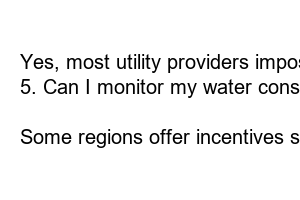상하수도 요금 조회
Title: Simplifying Water and Sewerage Bill Inquiry: A Comprehensive Guide
Introduction:
Are you tired of grappling with complex water and sewerage bills? Do you often find yourself scratching your head, wondering what those cryptic numbers and charges actually mean? Fret not! In this blog post, we will unravel the mystery behind water and sewerage bills, providing you with a comprehensive guide on how to navigate this often-confusing process.
1. Understanding Your Water and Sewerage Bill:
Your water and sewerage bill is a monthly statement indicating the amount of water consumed and the associated charges. It typically includes important information such as meter readings, billing period, consumption rates, and any additional charges or taxes.
2. Decoding the Terminology:
To make sense of your water and sewerage bill, it’s crucial to familiarize yourself with some key terms. Meter readings reflect the amount of water consumed during a specific period. Consumption rates determine the cost per unit of water usage. Additional charges may include late payment fees, connection fees, or penalties for excessive water usage.
3. Analyzing Your Consumption:
By closely monitoring your water consumption, you can pinpoint any irregularities or unexpected spikes in usage. Make note of changes in household size, lifestyle habits, or any undetected leaks that may impact your bill. Regular monitoring empowers you to minimize wastage and save on your water costs.
4. Spotting and Fixing Leaks:
Leaky faucets, toilets, or pipes can significantly contribute to higher water bills. Watch out for signs such as dripping sounds, water stains, or unusual dampness. Promptly fixing leaks can not only save you money but also conserve the planet’s precious water resources.
5. Seeking Clarification and Assistance:
If you encounter any discrepancies or concerns regarding your water and sewerage bill, never hesitate to reach out to your utility provider. They have dedicated customer service teams who can help clarify any doubts, address billing errors, or provide advice on conservation measures.
6. Embracing Digital Alternatives:
Many utility providers now offer online platforms or mobile apps for bill inquiry and payment, ensuring convenience and accessibility. You can view your bill summary, account history, and real-time consumption to better manage your water usage and expenses.
7. Take Advantage of Conservation Programs and Rebates:
Some regions provide incentives for water conservation efforts. Stay informed about any available programs, rebates, or workshops aimed at promoting responsible water usage. By participating in these initiatives, you can not only save money but also contribute to a greener future.
Summary:
Understanding your water and sewerage bill is essential to make informed decisions and manage your household expenses efficiently. By familiarizing yourself with the various components of your bill and proactively monitoring your water consumption, you can identify areas for improvement, detect leaks, and ultimately reduce your utility costs. Embrace digital tools, seek clarification when needed, and take advantage of conservation programs to optimize your water usage and contribute to a sustainable future.
Frequently Asked Questions (FAQs):
1. How often will I receive my water and sewerage bill?
Water and sewerage bills are usually issued on a monthly basis, detailing your consumption and charges for the specified billing period.
2. What should I do if my bill seems unusually high?
If your water and sewerage bill appears to be higher than usual, it is advisable to check for any leaks or sudden changes in consumption. Reach out to your utility provider’s customer service team to resolve any concerns or discrepancies.
3. Can I dispute any charges on my water and sewerage bill?
Yes, you can contest any charges on your bill that you believe are incorrect or unjustified. Contact your utility provider’s customer service department to initiate a dispute and seek clarification.
4. Are there any penalties for late payment of water and sewerage bills?
Yes, most utility providers impose late payment fees for overdue water and sewerage bills. Ensure timely payment to avoid additional charges.
5. Can I monitor my water consumption in real-time?
Some utility providers offer digital platforms or mobile apps that allow customers to monitor their water consumption in real-time, empowering them to make informed decisions regarding water usage and conservation.
6. Are there any incentives available for conserving water?
Some regions offer incentives such as rebates or workshops to encourage responsible water usage. Stay informed about local conservation programs to take advantage of any available benefits.

